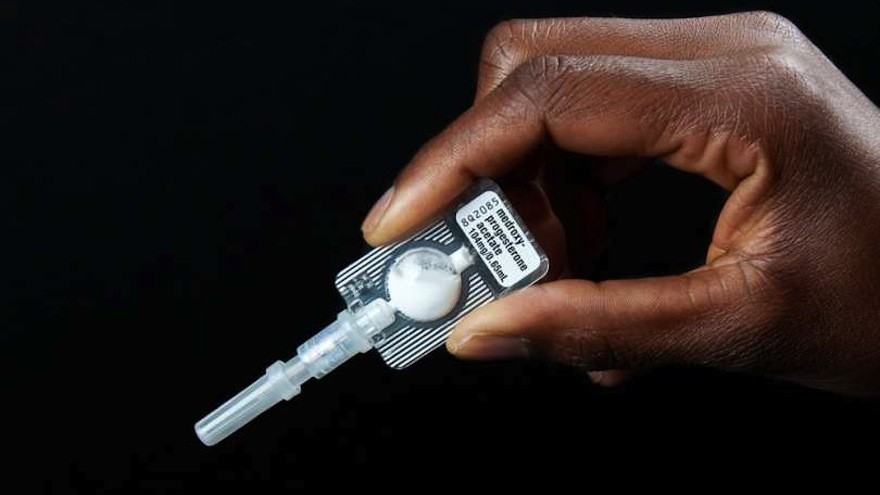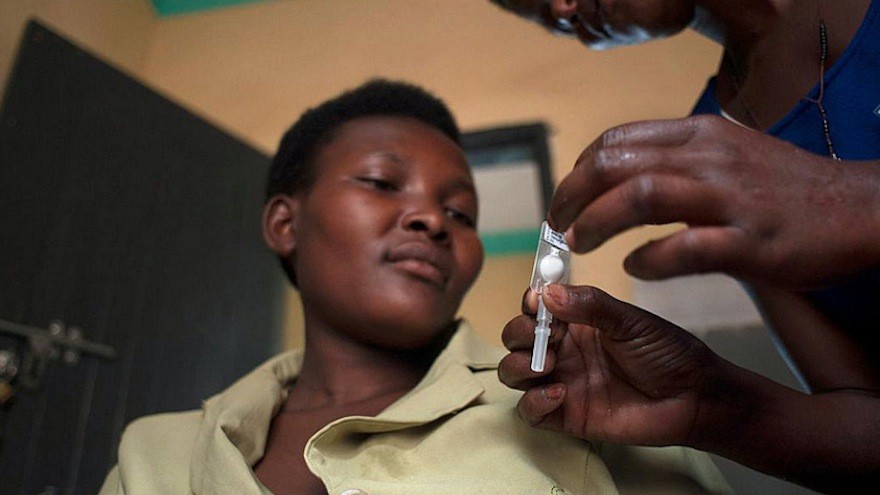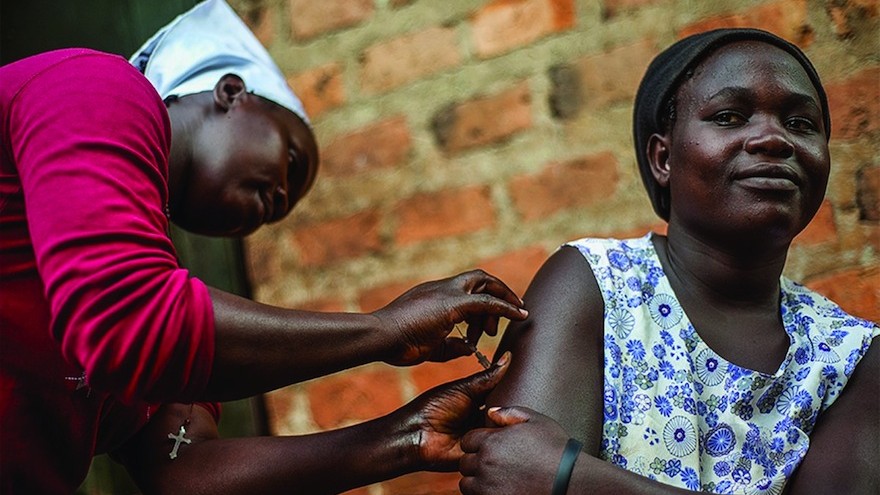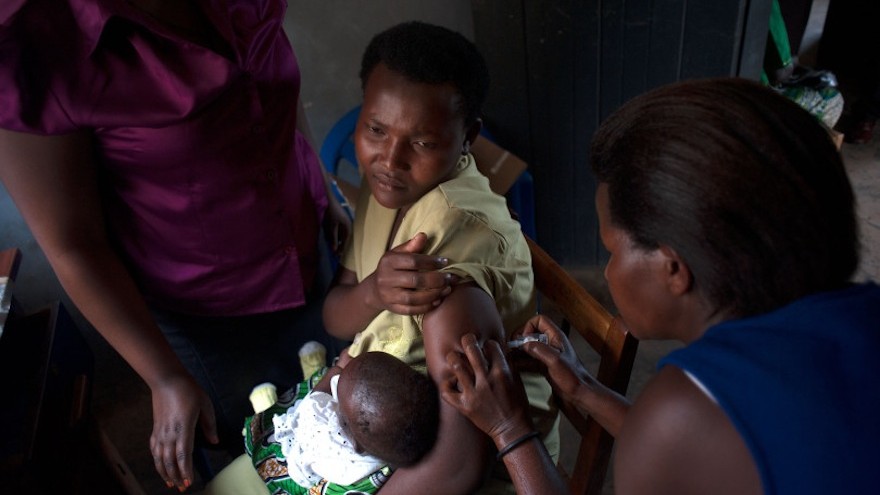Sayana Press is a new low-cost injectable contraceptive that is making access to birth control significantly easier in Niger, Burkina Faso, Senegal and Uganda.
In sub-Saharan Africa 70 million rural women already use the traditional vial-and-syringe injection because of policies that allow community health workers to administer the drug. But Sayana Press is an important development because its low-cost design enables greater access to contraception. It is effective, requires only a single injection every three months and can be used without the knowledge of a sexual partner.
The contraception is a combination of two things – a drug and a device. The active medication in Sayana Press is Depo-Provera – a widely used, long-acting contraceptive, administered via the a Uniject device. The Uniject device, which looks like a plastic bubble with a short needle attached, is a pre-filled, single-dose contraceptive designed to enable low-level health workers, and even users themselves, to inject the drug.
Since June, more than 170 600 Sayana Press units have already been distributed to health facilities across Burkina Faso, Niger, Senegal and Uganda and an additional 6 000 health care providers have been trained in Sayana Press administration.
Contraception in the developing world is often tricky because of stigma and access. Sayana Press solves these two problems by being discreet and easier to access because, rather than a two-part vial and syringe contraception, Sayana Press is a single, inexpensive unit.
The low-cost contraceptive is a result of collaboration between Pfizer pharmaceuticals and several global aid groups such as USAID. The product typically costs about $1.50 a dose, but Pfizer is selling it to healthcare institutions in developing countries for just a dollar.










